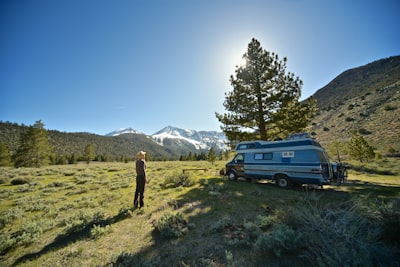Now that it’s September, the summer is beginning to move slowly towards its close. The time is nearing when many RV operators will return to their permanent homes for the winter.
While they wait for a new season to offer fresh RV adventures, many owners put their vehicles in storage.
Why Storage is Important 
Long-term storage is a great for owners to guard and protect their RVs when they are not using them. They might place the RVs in a garage or barn, or they might store them under a cover on their property. Such methods can protect the RV from common environmental or theft risks.
Nonetheless, storage comes with its own risks. RV owners should protect the RV in storage using preventative safety measures.
RV Storage Safety Tips
Even stored RVs face hazards. For example, a winter snow storm may cause a tree to fall on a parked RV, damaging the roof. The owner may have to make an RV insurance claim to fix the damage. With the right care, owners can protect their vehicles from storage damage.
- Park the RV in a clean environment, preferably enclosed from the elements. This can help keep out pest or weather damage. If such exposure occurs, it may lead to deterioration and damage vital systems.
- Clean the RV before storing it. Use disinfectants, and clean out the food storage, plumbing and other sanitary pumps thoroughly.
- Shut down and protect all built-in appliances in the vehicle.
- Remove all valuables from the vehicle.
- Service the RV by changing the oil, checking the battery, servicing the engine, checking the tires and following all other preventative maintenance steps.
Doing so can help prevent deterioration during long-term storage. Some insurance companies classify such deterioration as normal wear and tear. Most policies don’t cover normal wear and tear. Therefore, you can avoid having to repair damage without insurance assistance.
Adjusting RV Insurance to Storage Coverage
As the time draws near to store the RV, owners should also review their RV insurance. They might be able to adjust coverage to better meet their storage needs.
Some insurance companies offer a storage option on RV insurance. The storage option allows the policyholder to keep certain elements of coverage while reducing coverage they may not need. This may mean reducing liability or collision coverage but keeping other comprehensive coverage. It might help the RV owner save on policy costs.
Furthermore, most policies renew annually. A yearly review of the policy can help owners catch coverage gaps and adjust their policies as needed.